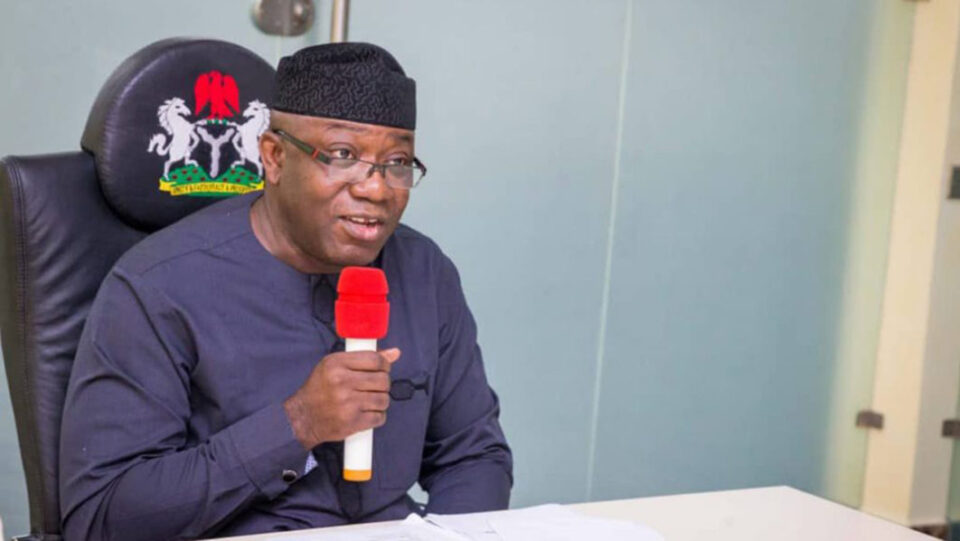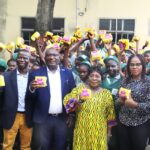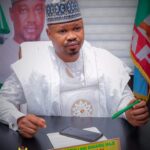By Felix Khanoba
The Chairman of the Nigerian Governors Forum (NGF), Kayode Fayemi, says states are to incorporate components of the African Continental Free Trade Area (AfCFTA) agreement into various development plans in order for the continental trade pact to be successful in Nigeria.
Fayemi, who is the governor of Ekiti State, made this known at the opening of a three-day Subnational Strategy Workshop on AfCFTA organised by the National Action Committee on AfCFTA in conjunction with the NGF on Tuesday in Abuja.
The governor said trading under AfCFTA’s banner would support the nation’s economy in the area of trade and investments expansion, adding that states must fully key into it to get the maximum benefits.
“For Nigeria to benefit fully from this opportunity and position itself competitively, the sub-national governments need to incorporate considerations of the agreement into our development plan,” he said.
Fayemi, however, expressed concerns that the revenue generating mentality of the Nigerian Customs Service, the Nigerian Immigration Service and some regulatory agencies may pose a serious threat to AfCFTA unless there is change of attitude.
“We have Customs, I don’t want to go into the details of the mentality of our Customs – which focuses more on revenue generation than trade facilitation, and trade facilitation is what will make AfCFTA works better in our environment, ditto our Immigration Service.
“Yes, we all say under the Buhari’s administration as part of the ease of doing business competitive framework, we now allow visa at the point of entry, but those who have gone through that experience will also tell you that trying to bring people in on the visa at point of entry is an experience you will rather not have because is not as smooth will claim it to be,” Fayemi said.
While saying Nigeria needs to overcome challenges that will come with AfCFTA, Fayemi harped on the need to maintain the country’s leading position in Africa’s integration by bringing down ideological limitations and artificial trade barriers.
” Nigeria has a tradition and history of being involved in regional integration both at the African Union level as well as being a foundation member of ECOWAS – our regional economic network, so the basis is already there for trade facilitation, for job creation, for expanding economic opportunities for our businesses and ultimately we will be the beneficiaries if we focus on this and look at the opportunities and challenges, and block the leakages that may make it difficult for us to be a full part in the AfCFTA…..
“Nigeria is already utilising regional trade opportunities, contributing approximately 76percent of total trading volume in the ECOWAS region. AfCFTA will only further enhance this trade, creating new economic opportunities and spurring economic and trade growth,” he said.
Also speaking at the workshop which has its theme as ‘Creating Economically Viable Communities,’ Minister of Industry, Trade and Investment, Adeniyi Adebayo, said Nigeria signed the AfCFTA agreement on 7 July 2019 and submitted its instrument of ratification on 5th December, 2020.
“The opportunity we have been presented with by the agreement is access to a single market in Africa with a population of 1.2 billion and a combined Gross Domestic Product (GDP) of $3.4 trillion.
“AfCFTA will eliminate tariffs on 90 percent of tradable goods over five years for developing countries and 10 years for least developed countries and customs unions like ECOWAS and this will expand market access for Nigeria’s goods and services, which would in turn, catalyse production growth and boost job creation in the Nigerian economy,” the minister, whose speech was read by Yonov Agah said.
He called on the participants to collaborate with the National Action Committee on AfCFTA, saying its secretary, Francis Anatogu would work with state AfCFTA offices to achieve the desired goals.
On his part, Yonov Agah, who is the Director General of Nigerian Office for Trade Negotiation (NOTN), said AfCFTA is a work in progress and yet to commence as only the framework of the pact that has come into force.
“The actual trading has not commenced, what commenced in January is just political,” he said.



